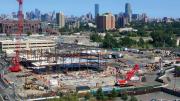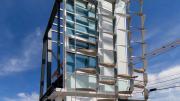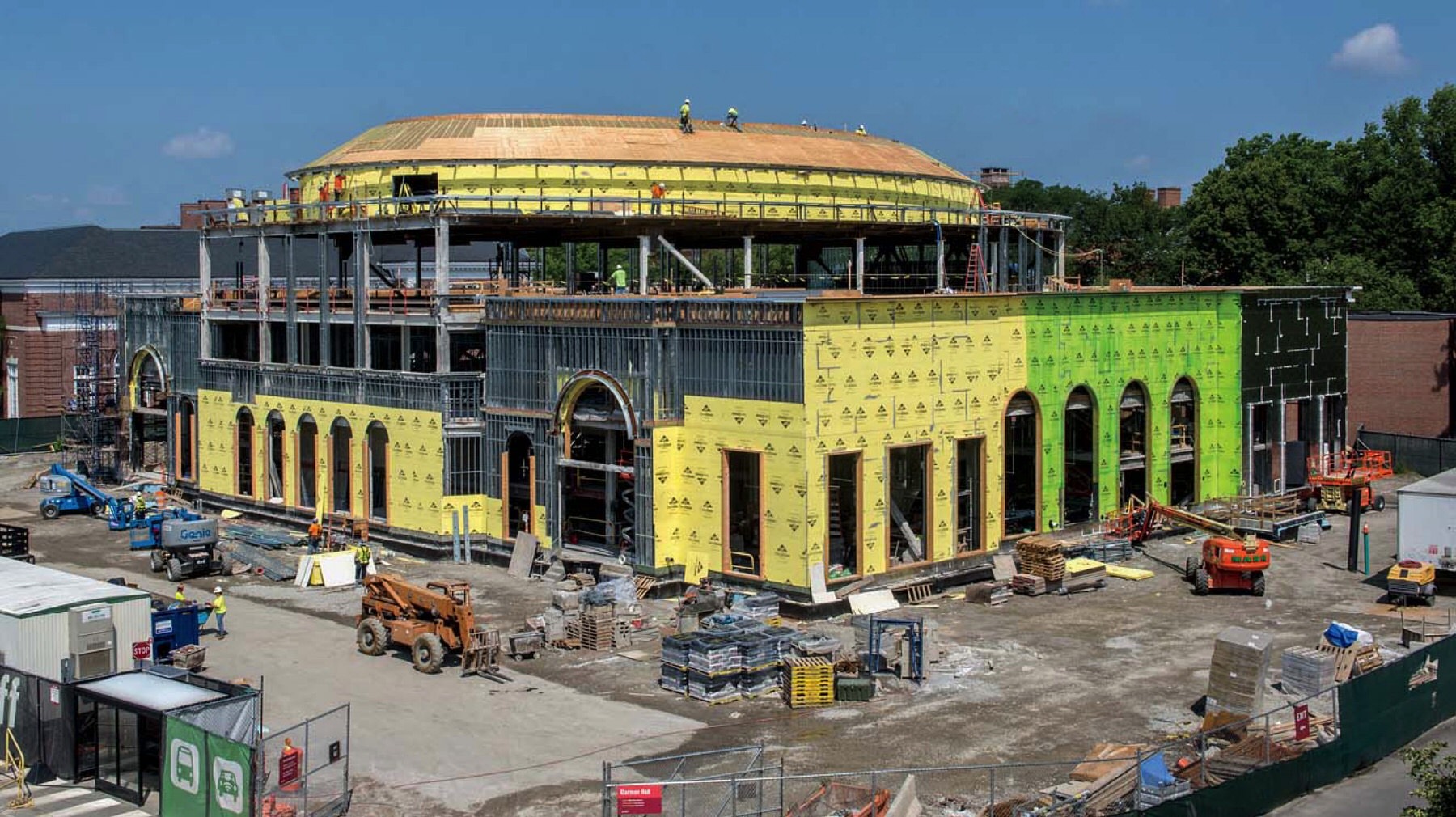John Harvard, general contractor, was flat-out this summer—in all seriousness, perhaps the University’s busiest building season. Marquee projects include assembling the future home of much of the engineering and applied sciences faculty (shown above). Construction was halted during the financial crisis, in early 2010; the new facility, redesigned in a smaller footprint, is to open by the 2020-2021 academic year. Work also began on the district energy plant that will serve the area. Mockups of the science complex’s façade, shown in the photo carousel above, suggest the detailed construction ahead. Meanwhile, Harvard Business School’s sidewalk superintendents had plenty to watch at Klarman Hall (below), the future conference center, where the applied scientists will no doubt be welcomed. The former Holyoke Center’s rear entry was razed during its makeover into Smith Campus Center; surrounding streets gave way to heavy work on Lowell House, and finish work at Winthrop, including new faculty-dean quarters—all part of undergraduate House renewal (shown in the photo carousel below). In addition (though not shown): Lavietes Pavilion will reemerge for fall baskeball; the Sackler Museum is being renovated for new users; and Soldiers Field Park renovation continues. And smaller nips and tucks, as at Grays Hall in Harvard Yard (for a serenity room and BGLTQ offices), were undertaken, too.
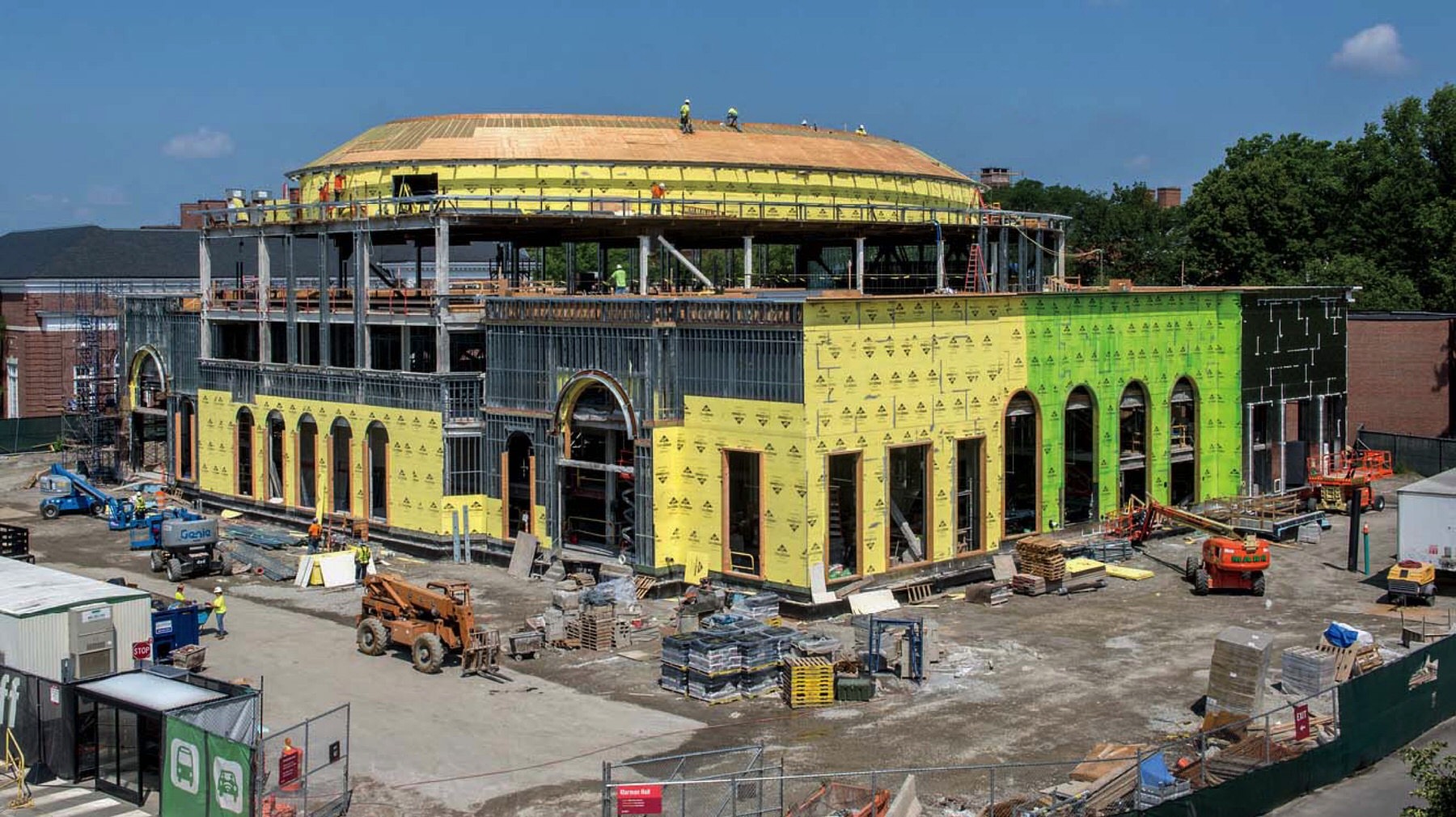
Klarman Hall takes shape.
Photograph by Jim Harrison
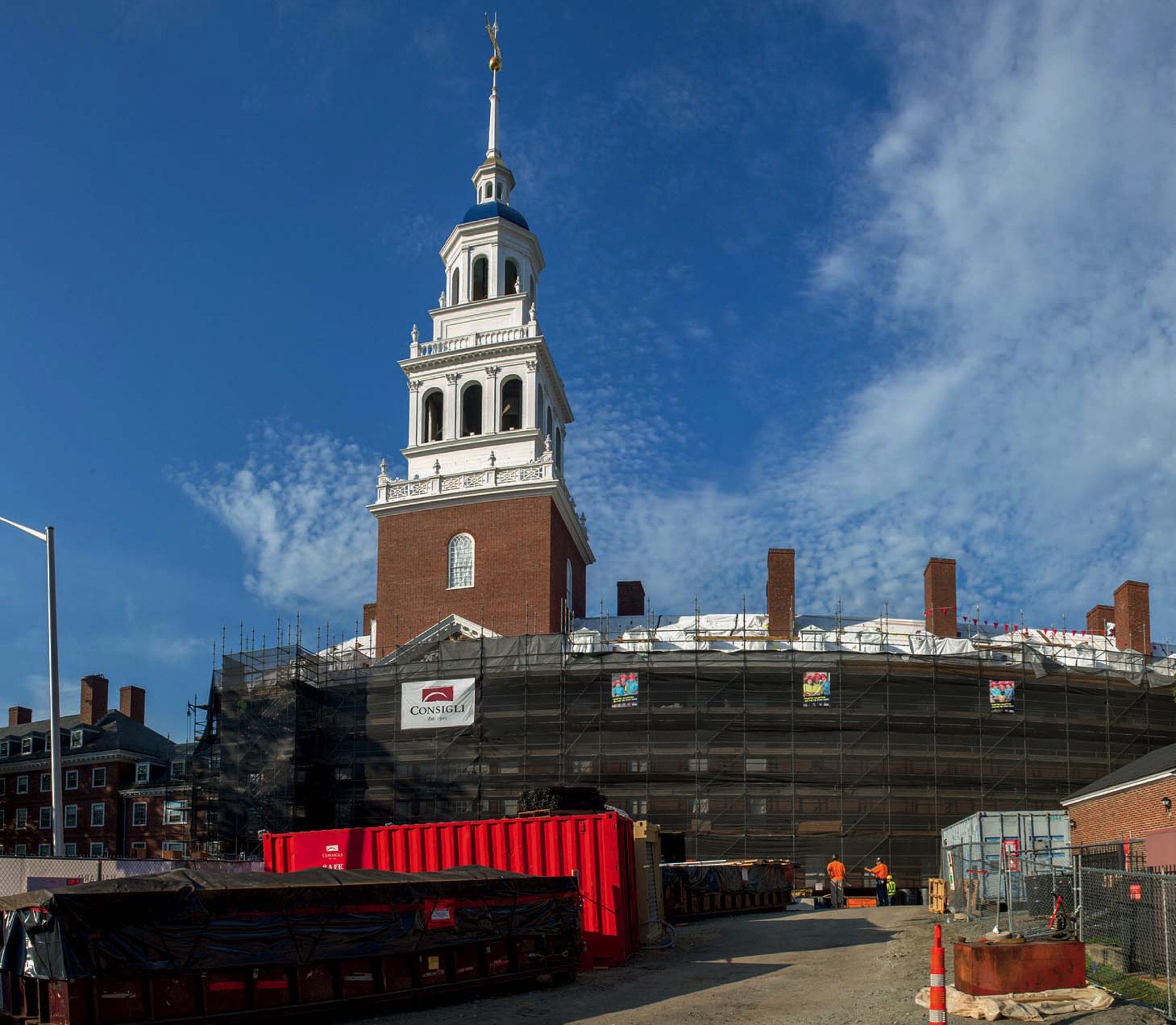
Lowell House under wraps
Photograph by Jim Harrison
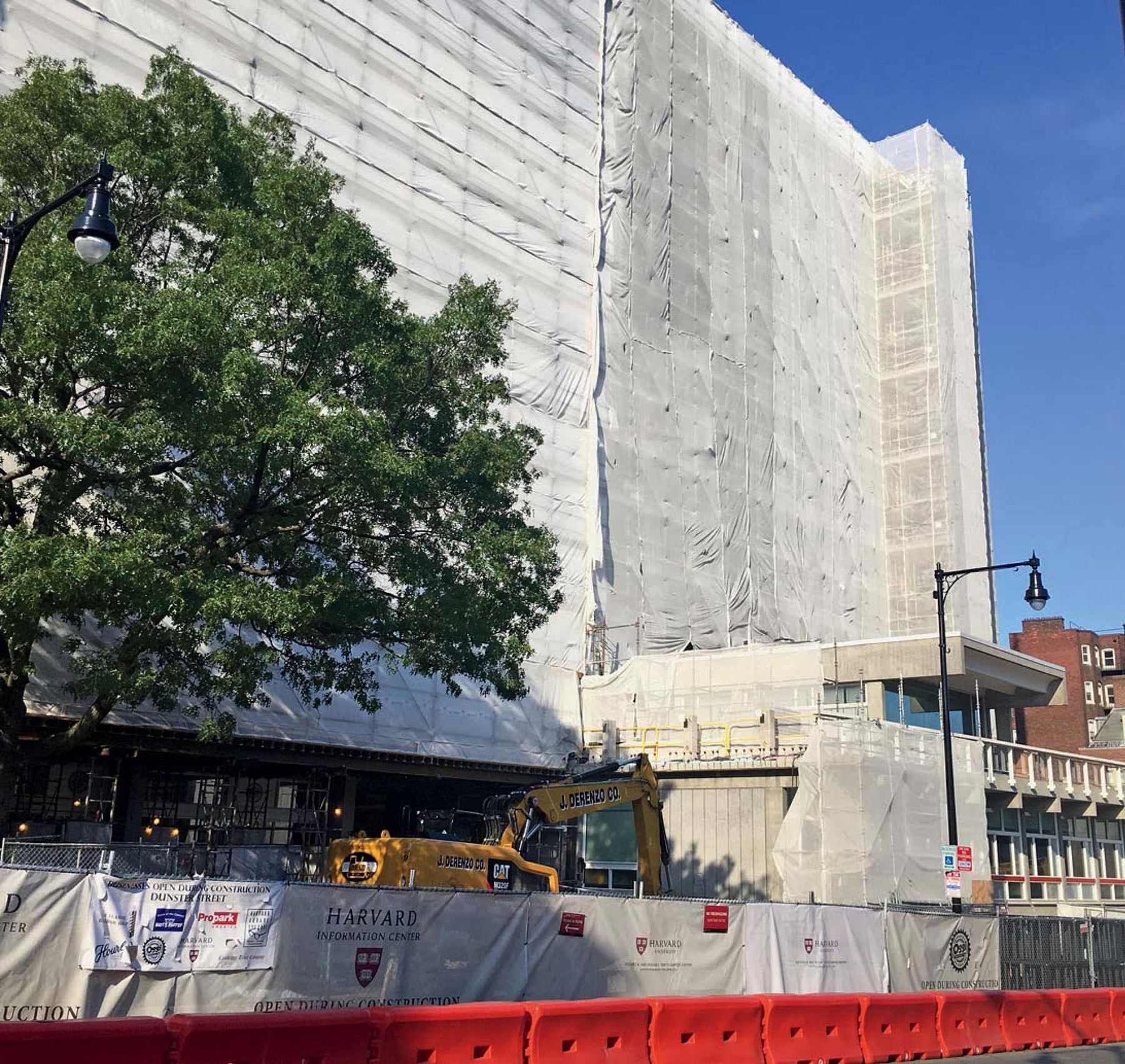
From Holyoke Center to Smith Campus Center
Photograph by Harvard Magazine/JC
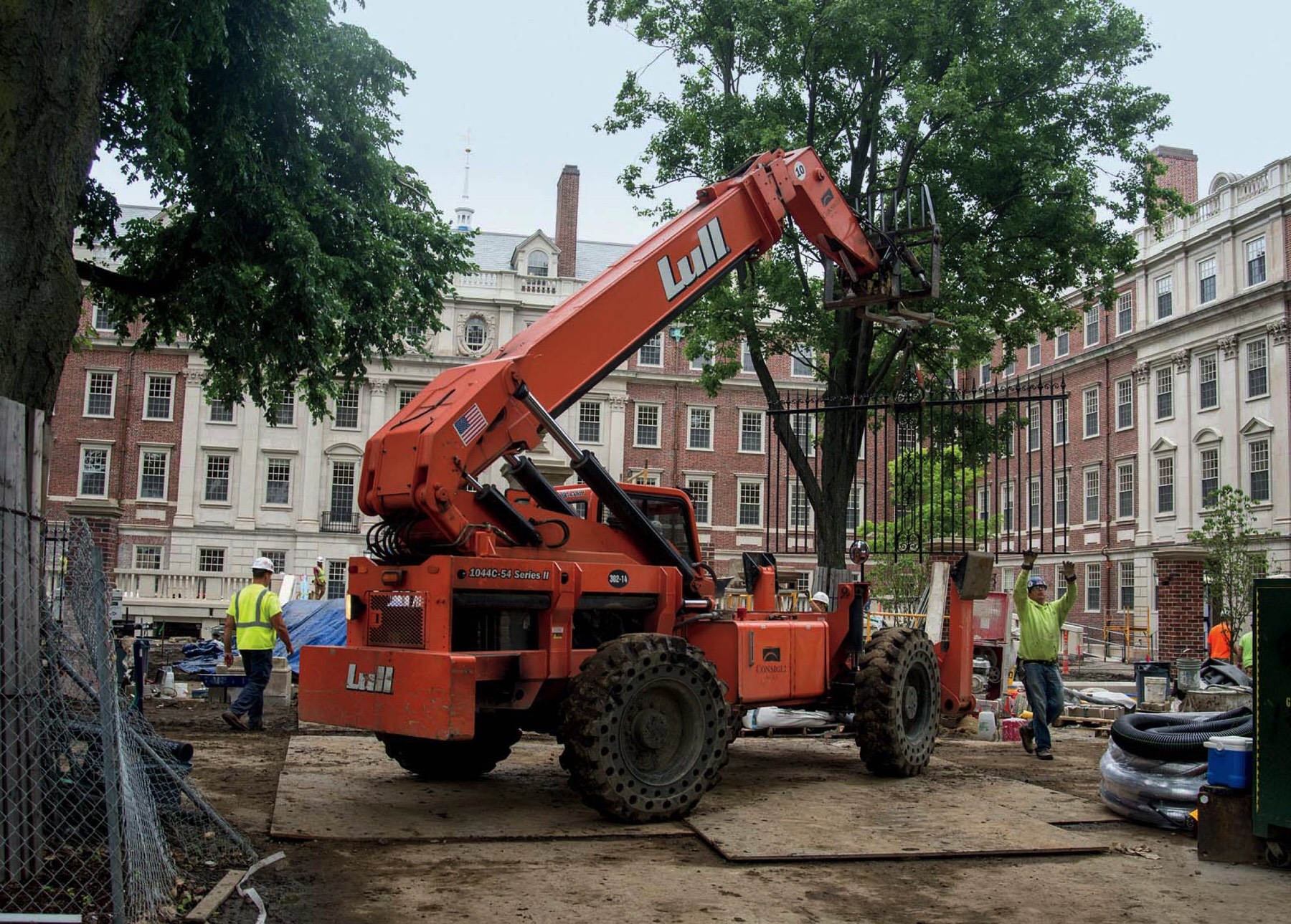
Winthrop House in final reconstruction
Photograph by Jim Harrison
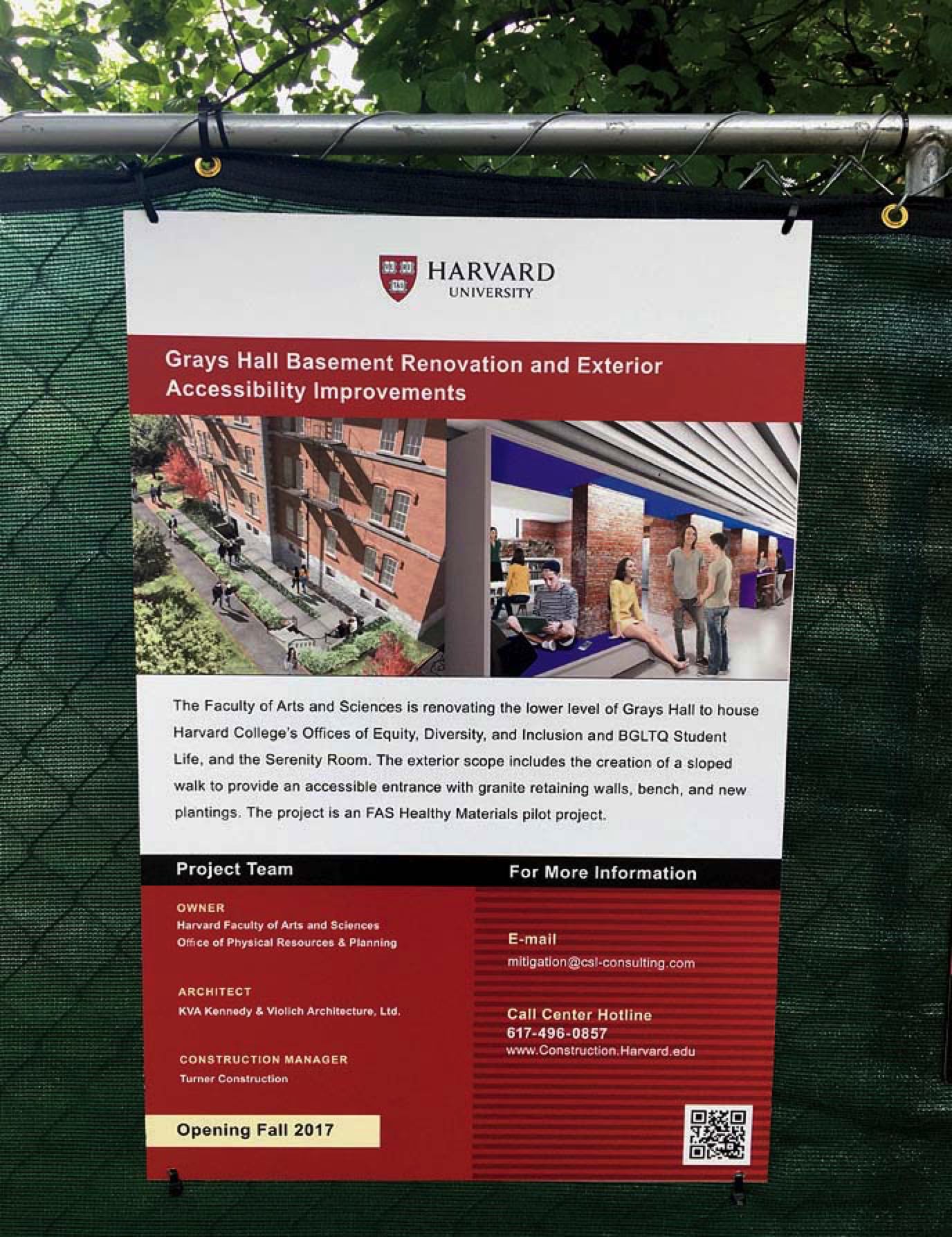
One of many smaller campus construction projects this summer
Photograpy by Harvard Magazine/JC
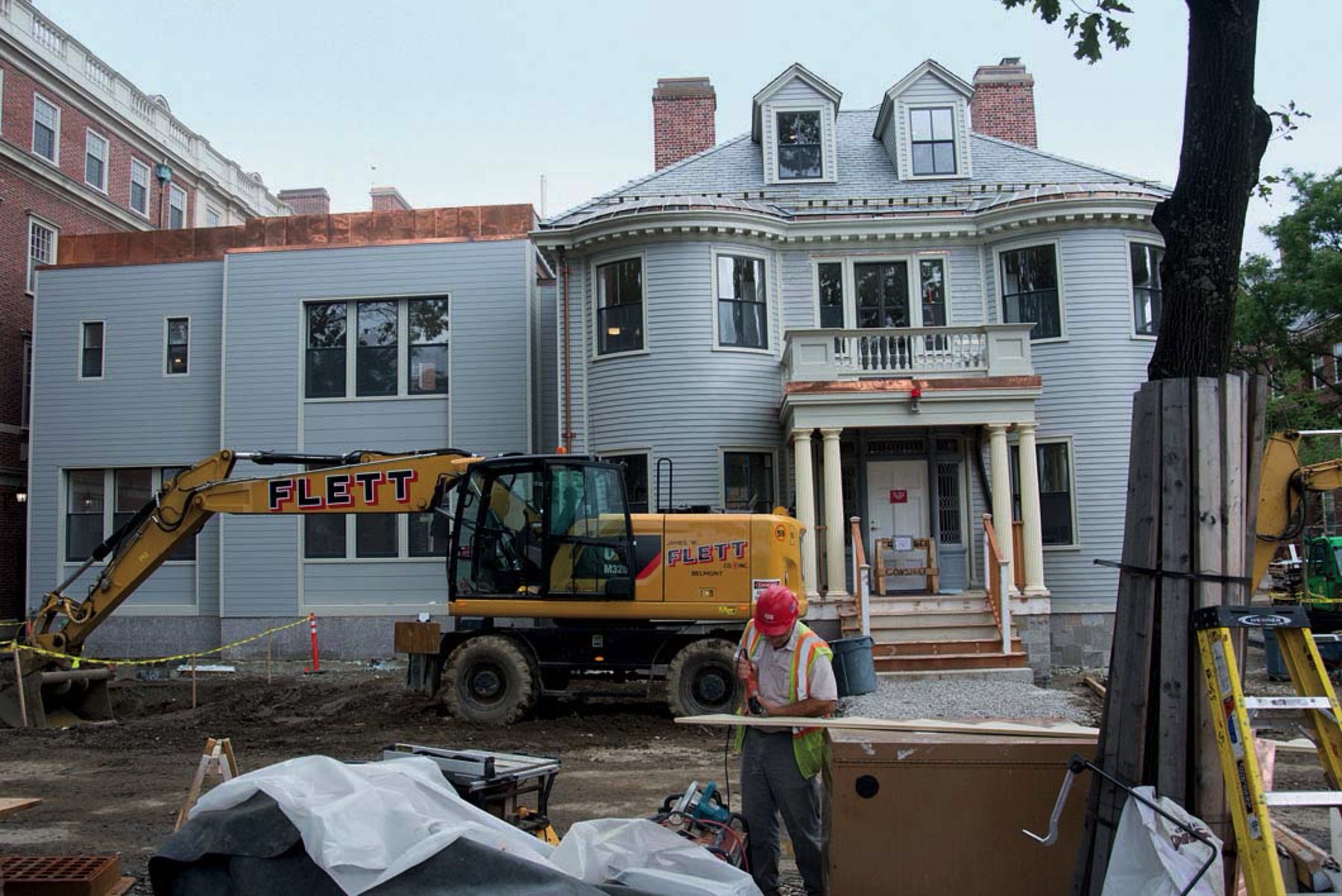
The future quarters for Winthrop’s faculty deans is readied for residents.
Photograph by Jim Harrison
